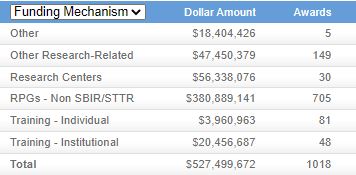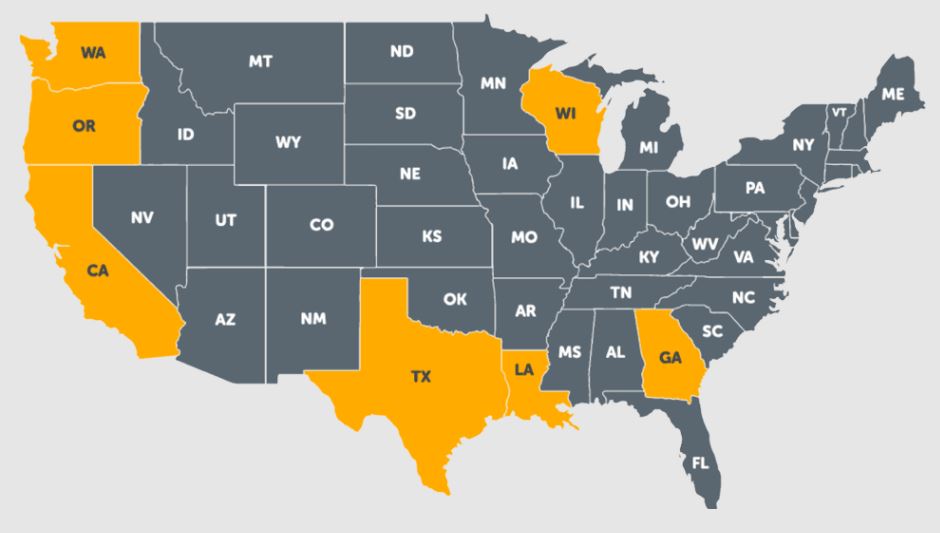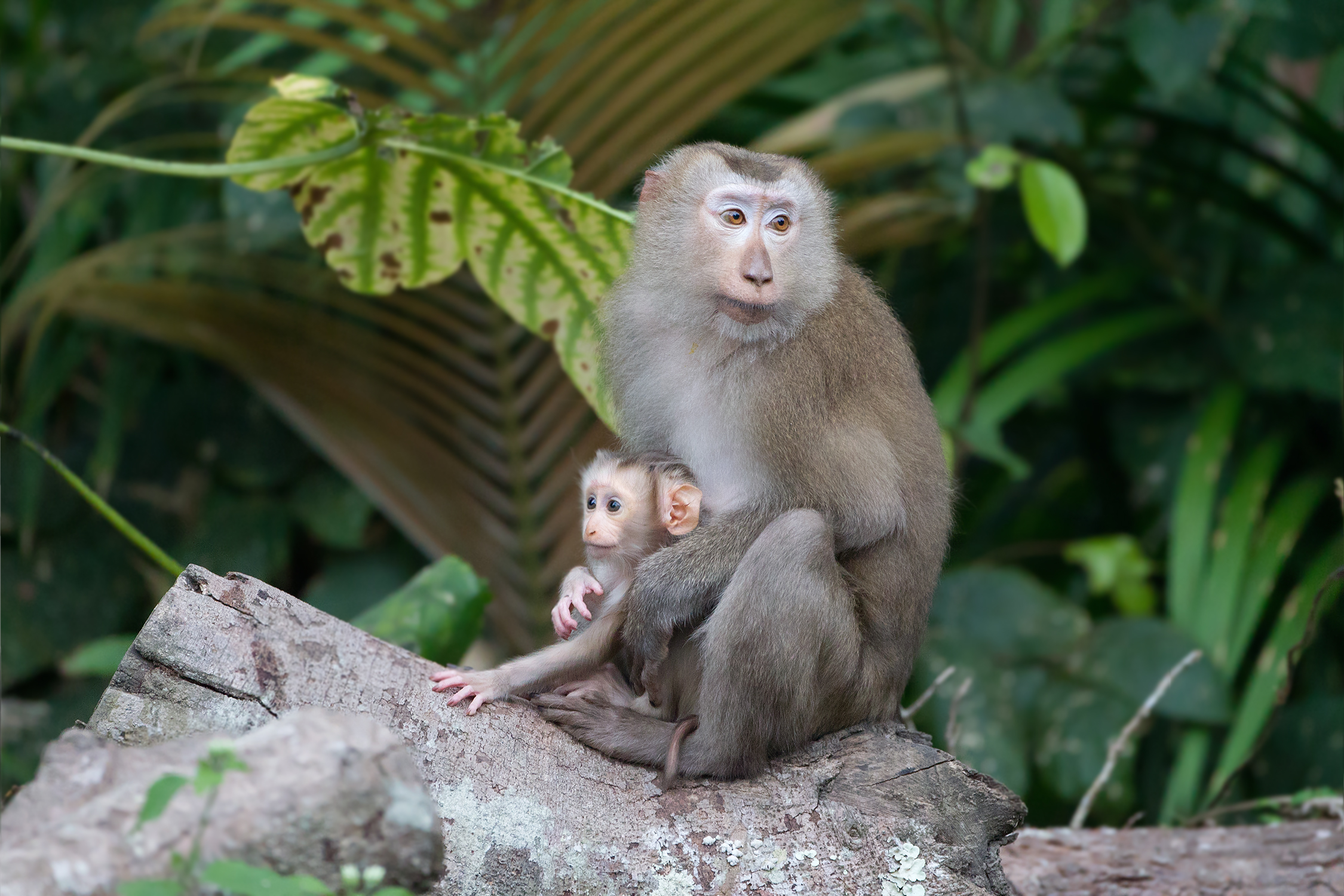SEATTLE, Wash., November 21, 2021 – After years of violations and questionable conduct, animal activist group PETA calls upon the University of Washington Primate Research Center (WaNPRC) to close its operation as its last year of funding and potential breach of lease approach in 2022.
The Washington National Primate Research Center (WaNPRC) is one of seven remaining flagship primate centers established in the early 1960’s and continuously funded by the National Institute of Health (NIH), with satellite facilities located in downtown Seattle and Mesa, Arizona.
The center first began operating in 1961 and includes the following divisions: AIDS-Related Diseases, Global Programs, Neuroscience, NHP Systems Biology, and other related research support cores. Key areas of research at the facility, according to its website, include infectious diseases, neuroscience and brain disorders, and reproduction and endocrinology. The facility housing over 1,500 primates according to National Primate Research Centers.
In 2021 the University of Washington received $527,499,672 in NIH funding, slightly lower than its 2020 amount of $533 million, for research and training.

The location of the other six primate centers in the United States
are in Beaverton, Oregon housing over 5,000 primates; Davis, California with
over 4,000 primates; San Antonio, Texas housing over 2,900 primates; Covington,
Louisiana with over 4,500 primates; Madison, Wisconsin with over 1,500
primates; and Atlanta, Georgia housing over 3,000 primates.

Although the National Institute of Health (NIH) has funded the UW’s research facility since 1961, Director of National Institute of Allergy and Infectious Diseases (NIAID) Dr. Anthony Fauci, who has received recent scorn for alleged testing on beagle puppies, has not been found to be directly linked to the research conducted at the Seattle facility.
The July issue of the PLOS Neglected Tropical Diseases Journal published information claiming that the NIAID was funding experimental research on beagles in Tunisia – trapping the heads of the animals in mesh cages as sand flies consumed their flesh. In October, the journal issued a correction after NIAID denied involvement with the study.
Washington National Primate Research Center Violations
In one recent eight-month period, the federally funded center, including its breeding center in Mesa, Arizona, treated 332 traumatic injuries, more than 200 gastrointestinal problems, 149 cases of significant weight loss, 19 cases of rectal prolapse, and a dozen implant abnormalities.
Within the last few years, federal inspection reports reveal violations of federal law, negligence, and failure of oversight resulting in the deaths of thousands of monkeys within the facility.

In 2019, an experimenter at the facility insisted a surgery be proceeded on a monkey that had not been properly fasted the night before, resulting in the monkey entering respiratory arrest and dying.
In that same year, a monkey undergoing a painful procedure was given a diluted opioid analgesic resulting in inadequate pain relief. Through an investigation by the U.S. Department of Agriculture it was found that the medicine cabinet had been left open and the opioid had appeared stolen.
In 2018 a pigtail macaque strangled to death when he became untangled in a chain attached to his cage.
In 2016 a monkey died while undergoing an MRI but the cause of death could not be determined because the facility failed to maintain appropriate records. In less than a month later, an eight-year-old pigtail macaque died from dehydration when her watering line had not been properly fastened to her cage. The reported found that the animal did not have water for at least 48-72 hours.
In 2015 three monkeys died due to significant health issues as a result of medical documents that were not adequately filled out.
In three separate incidents in 2013, baby pig-tailed macaques were attacked and sustained extensive traumatic injuries, and either died or were euthanized.
In 2011, the USDA fined the UW $11,000 after a pig-tailed macaque was found, dead in her cage having lost over 25 percent of her body weight – she starved to death.
In 2008 the UW was fined $20,000 for conducting unauthorized surgeries.
According to the Office of Animal Welfare at UW, only three incidents of non-compliance were reported to the USDA for 2021 at the Seattle facility – all were in January. Rabbits did not receive the required daily checks, a nonhuman primate was left in a trapping run for at least 12 hours without access to food or water, and two nonhuman primates escaped their cages and were treated for injuries.
Dr. Lisa Jones-Engel and PETA’s campaign to close the University of Washington Primate Center
The Lynnwood Times reached out to Dr. Lisa Jones-Engel who spent 14 years working as a senior primate research scientist at the WaNPRC and three years as a professor of Anthropology at the University of Washington.
Through her time at the facility she accounted, firsthand, many of the conditions the monkeys underwent including experimental surgeries. She shared where electrodes were implanted into monkey’s brains and wire coils implanted into their eyes, infecting them with Ebola which resulted in hemorrhagic fever – both internal and external bleeding. She stated that the primates were kept in small, enclosed cages. In one incident, through careless error, one monkey was fed only on weekends for as long as seven weeks straight.
“These
are incredibly social animals; what makes you a macaque is your relationship
with other animals in your group. It’s who you forage
with, who you groom with, being able to come back at night and huddle together
for safety and comfort, that is what makes a macaque. You take [all of] that
away from them by placing them in a cage the size of your kitchen cabinet,” Dr.
Jones-Engel told the Lynnwood Times.

Dr. Jones-Engel explained to the Lynnwood Times that many of the diseases the research facility aims to build vaccines against, including COVID-19, simply do not work the same way in primates as they do in humans and therefore using the species for testing does not provide accurate results.
Pfizer and Moderna scientists, for example, tested their products on around 51 primates in compliance with the FDA requirements but according to Dr. Jones-Engel, “They knew from the beginning that these monkeys were just not a reliable model for what this infection looks like in humans.”
As scientific research continues to develop, more sufficient ways to test drug compounds, according to Dr. Jones-Engel, would be organs on a chip or stem cells, both more accurate models for how vaccines work in a human system than monkeys, and more sustainable and ethical.
Scientific communities in 2010 began discussing the use of chimpanzees for animal testing, our closest living relatives sharing a common ancestor about 5 million years ago. The decision they came to was that the use of chimpanzees was neither appropriate nor scientifically relevant to improve human health.

“If we know, as a community that chimps, our closest living relatives, don’t recapitulate disease in the same way that we do, who in their right mind thought that monkeys we haven’t shared a common ancestor within 24 million years would be appropriate?” Dr. Jones-Engel said.
Dr. Jones-Engel continued to say monkeys are used in these experiments simply because they are smaller and cheaper than apes.
Congress was about pull the plug on the research facility back in the 80’s after the facility failed to deliver on their promises but the facility promised, if given more money and monkeys, they could develop a vaccine for HIV – there was never a vaccine developed. In fact, the five vaccines that passed clinical trials and succeeded in monkeys, failed miserably when tested on humans signifying Dr. Jones-Engel’s claim that moneys are not an appropriate surrogate in developing vaccines in humans.
Dr. Jones-Engel tried multiple avenues to have UW look critically at the primate center and animal use program while she was a member of the institution. In December of 2019, she began sending letters to UW’s President, Ana Mari Cauce, outlining issues that were uncovered through a two-year investigation involving FOIA’s and public records but she received no response.
“I left the primate center for failure to act on presence of tuberculosis, I left the UW entirely because of the systemic failure of animal oversight and scientific integrity,” Dr. Jones-Engel, who resigned from the University of Washington in 2019, told the Lynnwood Times.
Since her resignation, Dr. Jones-Engel was approached by two executive members of the animal activist group PETA to aid in a public campaign to shut down the facility completely, which began last year.
Dr. Jones-Engel grew up in a primate biomedical community beginning in the late 80’s. Back then, she explained to the Lynnwood Times that the animal rights community were “looked upon as fools.”
“It never crossed my mind, ever in my entire career, that I would be sitting where I sit now – as an animal rights scientific advisor for PETA,” Dr. Jones-Engel said. “The University of Washington turned me into an animal activist.”
In February of 2022, the ten-year anniversary for the lease agreement at the breeding site in Arizona, which is located next to a toxic waste site exposing the animals to valley fever, grants the opportunity to break the lease.
The exposure to valley fever in these primates make them unacceptable candidates for HIV testing, as reported by AZ Central, which Dr. Jones-Engel adds only supports the notion that the research facility continues to use the development of an HIV vaccine as a justification for remaining operational.
The University of Washington is in its last year of funding for the primate center, expiring April 30, 2022. The grant is currently in review for a new five-year cycle. According to Dr. Jones-Engel, the ability to sever the lease of the breeding facility and grant renewal could be an opportunity to close the research facility for good.
“UW could use this natural end point to say you know what? This is not working, it simply does not work to use these animals in biomedical research, we’ve wasted enough money, enough lives, we need to redirect our resources to human development research, and we need to shut down this primate research center,” Dr. Jones-Engel said.
When Harvard’s New England National Primate Research Center faced similar issues in 2013, they decided to close down.
“If you choose to look it takes an extraordinary person to decide not to see,” Dr. Jones-Engle said. “When people do that, that’s when this will stop. There are better ways to do science that doesn’t involve animals that are never going to give us the answers we need.”
University of Washington official statement
The University of Washington defends the WaNPRC as necessary to test certain research, dismissing PETA’s claims as inaccurate and misleading. They offered the Lynnwood Times the following statement regarding PETA and Dr. Jones-Engel’s efforts:
“The Washington National Primate Research Center(WaNPRC) is committed to ensuring that non-human primates are used only when there is not another alternative. We are accountable to several regulatory agencies including the USDA and the Office of Laboratory Animal Welfare at NIH.
“These federal regulatory agencies ensure compliance with standards as outlined in the Animal Welfare Act, the PHS Policy and the Guide for the Care and Use of Laboratory Animals. Additionally, the University of Washington is accredited by AAALAC International, which is a voluntary accreditation organization that oversees animal care programs.
“The University of Washington and WaNPRC remain in good standing with these oversight bodies and were most recently approved for continuing accreditation by AAALAC in November 2019.
“All these agencies are aware of all aspects of our program and all the issues raised have been corrected or dismissed as inaccurate or misleading.
“Our center as well at the six other primate centers across the country are frequently targeted by animal rights groups whose aim is to shut down all animal research. We continue to look for ways to conduct this research by using computer models, simulators and cell cultures, however, for some research, it is necessary to use non-human primates and we will continue to use that best practice while following appropriate care guideline and regulations”
Author: Kienan Briscoe











7 Responses
WaNPRC has a horrible rap sheet and hasn’t produced a single vaccine to help humans in 60 years. Experimenting on animals is impeding scientific progress, and it’s extremely cruel. It’s time to embrace modern, human-relevant research.
It should shut down. Animal experiments are cruel and pointless. There are humane and effective non-animal research methods. We should spend our time and money on those.
I 100% agree. Close it down and make sure that the animals are retired to reputable sanctuaries where they will get the expert care they need and deserve.